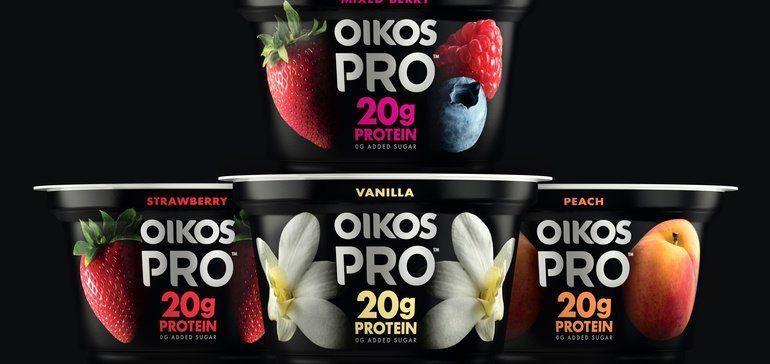Danone picks Barry Callebaut’s de Saint-Affrique as its CEO

Dive Brief:
Dive Insight:
Danone is in the midst of a meaningful period of upheaval in both its business and executive ranks, punctuated by the removal of its CEO amid investor discontent with the company’s underperforming brands and lackluster share price. Véronique Penchienati-Bosetta, the head of Danone International, and Shane Grant, who is the CEO of its North America operations, have run the business while the company searched for its new chief. They will continue to run the company until de Saint-Affrique takes the job.
“Danone has significant potential to continue to shape and contribute to how people eat and drink globally,” de Saint-Affrique said. The company, he noted, has a “strong and innovative portfolio of brands.”
Despite a deep presence in yogurt, plant-based foods, water and baby food that populate large swaths of the grocery store, activist investors including Artisan Partners Asset Management, Causeway Capital Management and Bluebell Capital Partners have called for changes.
“The underperformance of Danone’s share price has been driven, in our view, by a combination of poor operational track record and questionable capital allocation choices,” Bluebell wrote in a November letter to Danone’s lead independent director, Michel Landel.

Antoine de Saint-Affrique
The choice of de Saint-Affrique as CEO gives Danone a seasoned food executive who has spent nearly the past six years running chocolate ingredients provider Barry Callebaut.
Before that, he was at Unilever for 15 years, including four years as president of its foods division. De Saint-Affrique has valuable international experience that will come in handy running Danone’s expansive global footprint, which includes operations in Europe, Asia, Africa, the Middle East and North America.
Barry Callebaut, one of the world’s top manufacturers of high-quality cocoa and chocolate products, has been working to grow sales and set high standards for innovation and environmental and social responsibility.
At Danone, which placed a major focus on its environmental, social and governance goals under Faber, such expertise and insight from de Saint-Affrique could be immensely valuable. Still, he will have to deal with critics who have said Danone has focused too much on its environmental and sustainability efforts at the expense of its financial performance.
De Saint-Affrique’s biggest challenge, however, could come in rejuvenating sales and fending off stiff competition.
Danone is facing pressure from General Mills’ Yoplait, Greek yogurt maker Chobani, as well as countless startups. The bottled water category is inundated with scores of big-name and private-label brands. This includes Nestlé, which recently sold its North American bottled water business to focus on its international premium brands, local natural mineral waters, healthy hydration products and functional water.
Danone has a huge presence in plant-based offerings, which it doubled down on with its $12.5 billion purchase of WhiteWave in 2017. But Danone is facing strong competition from other CPGs and smaller firms in this growing category.
The company is in the process of conducting a strategic review of its portfolio of brands, SKUs and assets. It recently sold its stake in China Mengniu Dairy for $2 billion, and plans to use the money to repurchase its shares.
It’s also assessing the future of its plant-based protein powders brand Vega and its assets in Argentina. The sale of its China Mengniu stake, as well as divestitures of other businesses or brands, could give de Saint-Affrique a more focused portfolio and the cash windfall he needs to invest in Danone’s offerings and deal with a surge in input costs for the business.

